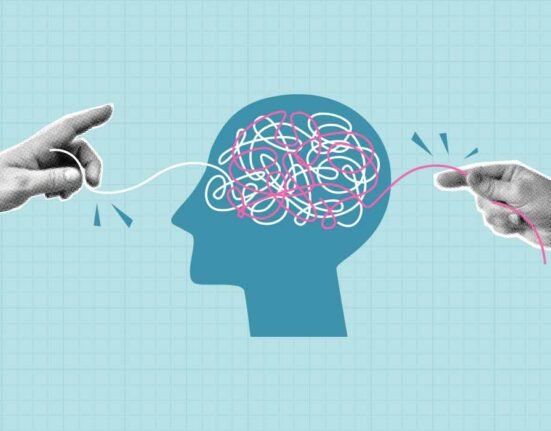Ageing is an inevitable truth of our lives that has profound impacts on our physical, mental, and emotional health. Hence, specialised care of the elderly is a necessity. Psychological, physical, and social therapies are included in Geriatric Therapy. In contemporary times, it acts as a vital discipline that improves the lives of old people by offering comprehensive care through a multi-faceted approach to health and wellbeing during the late years of life.
Understanding The Basics of Geriatric Therapy
Geriatric therapy combines multiple areas of study and particular approaches to assist those who are aged 65 and older. With ageing comes difficulties such as chronic health problems, social disengagement, reduced self-sufficiency, and many other issues. The foremost objective of geriatric therapy is to promote independence while maintaining the highest possible level of functioning. Physiotherapy, occupational therapy, psychotherapy, speech therapy, and many other health and behavioral fields are integrated into one unit in geriatric therapy. All of them improve the health of elderly people.
1. Physical Therapy: Restoring Mobility and Alleviating Pain
The ageing body starts to change: slowly, more muscle is lost, joint stiffness, and bone density loss are all part of ageing. Typical conditions include arthritis, osteoporosis, and immobility after a stroke. Physical therapy in geriatrics focuses on:-
- Pain management
- Post-surgical recovery
- Enhancing joint mobility
Therapists help the patient by making personalised plans for them. The major focus is on maintaining independence in their daily tasks, such as walking, dressing, etc. Even the slightest improvements in these areas can improve an old person’s confidence.
2. Occupational Therapy: Empowering Daily Living
This aspect of therapy is focused on letting older individuals engage in meaningful activities. These are referred to as “occupations of life”. For eg.-cooking, grooming, hygiene, etc. This therapy includes:
- Help adapting to the home environment
- Training in the use of assistive devices like walkers.
- Strategies for patients with dementia to help with daily tasks.
The therapists often work with caregivers and family members to ensure support for as long as they can.
3. Psychotherapy: Coping with Mental Health in the Golden Years
The loss of a spouse, feeling socially isolated, and health worries are some of the emotional difficulties that are more common among older adults. However, feelings of sadness, anxiety or depression are not part of normal ageing and can be effectively addressed through psychotherapy. Psychotherapy can help by
- Helping someone deal with grief or loss
- Giving a safe space to express emotions.
- Teaching ways to manage stress and negative thinking
- Talking about happy or important memories (this is called reminiscence therapy)
Geriatric therapists understand the unique struggles that they go through.
4. Cognitive Therapy: Helping with Memory and Thinking
Issues related to memory loss and slower cognition are common during old age. Conditions like Alzheimer’s and other forms of dementia may affect their brain. Cognitive therapy helps in keeping the mind active so that it functions as well as possible. It includes-
- Memory games or puzzles
- Activities using music, art, or storytelling
- Simple routines to keep the day organised
- Exercises to practice attention and problem-solving.
These therapies can make life easier and reduce stress for both the person and their family.
5. Including Family and Caregivers
Older adults usually depend on their family for support. Geriatric therapy tends to include them in the process. Therapists can help families by:
- Teaching how to care for an older loved one safely
- Advising on how to talk to someone with memory loss
- Helping manage caregiver stress and feelings of burnout
Older adults receive better care if the caregivers are well prepared and have proper knowledge on how to deal with it.
Challenges in Geriatric Therapy
While geriatric therapy can be very helpful, it also faces some problems. Some older people feel ashamed to ask for help, especially for mental health, which creates a stigma around it. These therapeutic approaches are also not easily accessible to all. Many can’t afford therapy. There is also a shortage of therapists in this field who specialise in dealing with adults. Hence, more awareness, training and support systems are needed to make Geriatric therapy accessible to all.
Conclusion
Therapy for the elderly goes beyond solving health complications; it aids older people in coping with life while simultaneously treating problems with dignity, comfort, and purpose. From helping a person who underwent surgery walk again, to recalling one’s life story, therapy works wonders in achieving healing and happiness. As people continue to age, the shift in how we provide care needs to be tailored in a manner that preserves their worth while addressing their care requirements. Geriatric therapy does just this. It serves as a reminder that one does not just age; rather, with careful nurturing, strength, and dignity, growing old means embarking on a new chapter in life.
FAQs
1. What is geriatric therapy?
Geriatric therapy is a specialised form of care designed for older adults, usually those above 65 years of age. It combines various therapeutic approaches, physical, occupational, psychological, and cognitive, to improve the overall well-being, independence, and quality of life of the elderly.
2. Why is geriatric therapy important?
As people age, they often face health problems like decreased mobility, memory loss, loneliness, or chronic diseases. Geriatric therapy addresses these issues in a comprehensive way, helping elders maintain dignity, stay active, and manage both physical and emotional challenges.
3. How is geriatric physical therapy different from regular physical therapy?
While both aim to improve movement and reduce pain, geriatric physical therapy specifically focuses on age-related issues like arthritis, osteoporosis, fall prevention, and post-surgery rehabilitation tailored to the elderly body.
4. Can psychotherapy really help older adults? Isn’t sadness normal in old age?
While occasional sadness is natural, ongoing depression, anxiety, or grief are not normal parts of ageing and can be treated. Psychotherapy helps elders cope with loss, loneliness, and stress, often using methods like reminiscence therapy, which focuses on joyful memories and life review.
5. What is the role of family in geriatric therapy?
Family members are often key caregivers. Geriatric therapists involve them by offering education, emotional support, and training on how to manage the elder’s needs at home, especially in cases involving dementia, mobility issues, or post-surgical care.
6. What kind of cognitive therapies are used for elders with memory issues?
Cognitive therapy for elders includes memory games, storytelling, music therapy, art activities, and structured daily routines to strengthen brain function, especially in those with Alzheimer’s or other forms of dementia.
7. Is geriatric therapy only for people with serious health issues?
No. Geriatric therapy can also benefit healthy elders by preventing decline, promoting mental well-being, and enhancing their independence in daily activities. It is both preventive and curative.
References +
Atiq, R. (2006, June 1). Common Themes and Issues in Geriatric Psychotherapy. https://pmc.ncbi.nlm.nih.gov/articles/PMC2990651/
Petkus, A. J., & Wetherell, J. L. (2011). Acceptance and Commitment Therapy with Older Adults: Rationale and Considerations. Cognitive and Behavioural Practice, 20(1), 47–56. https://doi.org/10.1016/j.cbpra.2011.07.004













Leave feedback about this